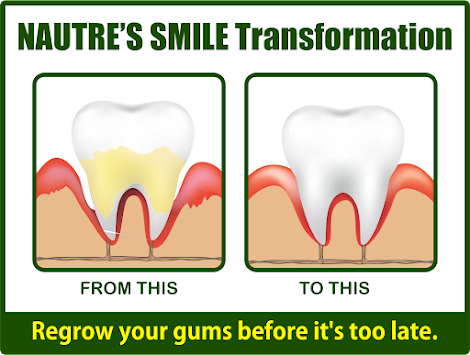Home Remedy for Receding Gums
Is There A Treatment For Receding Gums?
Gums don't just look good. They protect your teeth, jawbone, and chewing ability. Painful receding gums can be a problem if you don't look after them properly. Inadequate dental care and hygienic techniques can lead to more serious dental problems. This article will talk about bleeding gums. How to stop it from happening again? How exactly to stop receding gums from causing future gum pain!
What are Receding Gums or Gingival Recessions?
Receding gums certainly are a condition in which the gum line recedes from the teeth. Spaces between your teeth can form from damaged gums, making it problematic for you to eliminate bacteria and food. Neglecting to brush your teeth or having poor oral hygiene habits can cause painful receding.
Common Signs and Symptoms of Receding Gums
Here are some signs that your gums are receding:
- swollen gums
- tooth decay
- tooth loss
- inflamed gums
- gum bleeding
- misaligned teeth
- Sensitivity of the teeth
- Sores inside the mouth (usually on the tongue) that are not healing properly.
- Bad breath
Gum Recession Causes
Gum recession may appear for many reasons, including gum disease, gum inflammation rather than eating a wholesome, balanced diet.
Plaque Formation:
Gums ache due to plaque buildup on the teeth. Plaque buildup on the teeth can cause gum inflammation, which can result in periodontitis.
Aggressive brushing
When you don’t floss or brush regularly, painful receding teeth can become worse. The result is more buildup which injures your gums. Gums can also recede through aggressive brushing and the forceful use of hard-bristled toothbrushes on teeth.
➢ Poor Dental Hygiene:
Painful receding gums may also be linked to an unhygienic routine or improper dental hygiene, leading to more buildup and infection of the tissues surrounding one's teeth.
➢ Diabetes, Crohn’s Disease:
A higher risk of bleeding gum tissue can be due to diabetes, Candidiasis, an inflammatory condition like Crohn's and diabetes.
➢ Gum Diseases
Periodontitis, gingivitis, and other gum diseases can all cause bleeding.
➢ Herpes Simplex
Rare cases of herpetic witlow (a herpes finger infection because of direct contact with infected persons' salivary lesions or saliva) can lead to pain while chewing.
➢ Gingivitis:
Gingivitis, an oral disease with high rates of plaque retention, is known as gingivitis. Gingivitis causes gum tissue inflammation and eventually bleeding. This is due to poor hygiene habits, such as for example brushing too often or not enough.
➢ Periodontal Disease:
Periodontal diseases can result in the receding of the gums. This causes the gum line and bone around teeth to recede.
Other causes of painful periodontal problems include conditions that cause the gum tissue to thin, which can prevent it from protecting teeth against biting and chewing forces.
Is Gingivitis Contagious?
Gingivitis can be contagious in certain situations.
You are able to transmit gingivitis from one person to another by:
- Intimacy during the sharing and expressing of love with kids
- During the sharing utensils
- Coughing and sneezing at a distance
Gingivitis is caused by bacteria in the dental plaque. If someone with gum disease kisses your lips, this bacteria can be transferred to the mouth area.
There are numerous surgical treatment options:
The professional cleaning of tooth roots that have been left untreated can improve dental health or the condition of your oral cavity. It will help to take away the plaque and tartar which have accumulated on your own teeth' surfaces.
Scaling and root planning:
Scaling and rootplaning is a surgical procedure which aims to eliminate infections of the gums or roots.
During this procedure, the dentist use special tools such scalars (or other instruments) to eliminate tartar from teeth. They can also smoothen the roughened surfaces that result from dental erosion.
Periodontal Surgery:
Periodontal treatment is needed when gum recession becomes severe.
This surgery aims to return your gums where they should be, which might involve removing some teeth for the bone and tissue to heal properly.
Gum Graft and Flap Surgery
Gum surgery is conducted by a surgeon when the roots of a patient's teeth recede due to gum disease. There is no other way to avoid it. Gum grafts, also known as flap surgeries, aim to fill in gum recession by stitching together a piece of a new gum tissue extracted from another part of the mouth and even from your skin on one's arm.
The doctor will trim the gum receding and attach a tissue-graft (or flap) to cover it.
The task can be completed with local anesthesia in an outpatient setting within one to two days depending on the severity and extent of the gum recession. The stitches are then removed after approximately ten days.
Gum grafts provide a permanent solution to the situation of dental implants that can be costly and take a while.
This procedure is also beneficial in preventing bone loss due to gum recession.
Unfortunately, these surgeries can be expensive and can cause blood blisters and other complications.
Natural treatments to stop and heal receding gingivitis.
Brushing Your Teeth:
Gently brushing may be the best & most effective way to prevent receding teeth.
Use a soft bristled toothbrush two times per day to eliminate plaque stuck on your teeth. Do not brush your teeth too much as this can damage your gum tissue and cause disease-causing bacteria.
Brush your teeth properly for at least 120 seconds per part of your mouth; this means you need to use circular motions as well as up-and-down motions for each tooth.
Use fluoride-free toothpaste, which has whitening properties, to treat receding teeth and remove plaque buildup. Brush your tongue daily for good oral hygiene.
Saltwater Rinse
Salt water rinse is among best natural treatments to prevent gum recession and bleeding. Combine one cup of warm, salty water with one teaspoon. Rinse your mouth with the saltwater mixture for about 30 seconds. Saltwater reduces bacteria and improves dental health.
Continue with this technique until you are feeling no pain.
Herbal Poultice:
A herbal poultice is an all natural way to protect your gums from bacterial gum infections.
Apply a thin layer of herbal poultice onto the affected area to prevent bacterial gum infections. Cover it with gauze and cotton.
After leaving the remedy in your mouth for 15 minutes, you can then take it out.
Homemade Dental Spray:
You can make your own dental spray at home to treat gum disease. Take one cup of water, then add one teaspoon of salt to it and dissolve the salt completely. Stir in peppermint or spearmint extract and stir with a spoon to create foamy bubbles.
Add two tablespoons of baking soda to this mixture and stir it again.
This remedy may be used to treat gum problems.
Teabags
Teabags are a smart way to treat receding gingivitis.
Place one teabag in boiling water and let it sit for a quarter-hour. Then, take the teabag out and squeeze them to extract both liquids. Wrap this remedy around your gums for 20-30 minutes.
One dry tea bag is enough to make one cup of hot chocolate. Place it in the freezer for around 1 hour. Take this remedy out of the freezer, wrap it into your affected gum area and wear it until you feel rest from pain or discomfort.
Repetition these methods normally necessary to obtain desired rest from receding gums.
Tea Tree Oil
Have a cotton ball and dissolve it in tea tree oil. This remedy provides some relief for pain or disquiet.
Oil pulling:
Gum recession could be treated with oil pulling. For pain relief, use one tablespoon of sesame oils and gently rub it in to your gums for 20 minutes.
Aloe Vera Gel:
Gum recession can be treated with Aloe Vera gel which has tissue-stimulating proteins. This remedy can be applied to the gums by gently rubbing them. You'll feel some relief from any discomfort or pain. Aloe vera is a natural fix for receding gums.
Turmeric gel:
Because of its anti-inflammatory qualities, it is a highly effective treatment for gum disease. Apply this remedy to the affected gum area to get healthy gums, rub it gently on your own gum tissue surrounding, and you will feel some relief from pain or disquiet caused by poor oral health.
Green Tea:
The catechin in green tea really helps to reduce gum recession. It contains tannins to reduce inflammation, and astringents to heal gum infections.
Coconut Oil:
Coconut oil is an effective treatment for receding gums. Coconut oil also protects one's teeth from bacteria that cause tooth decay and gum diseases and helps repair tissue in irritation or damage.
Antibacterial Mouthwash
It could be worth considering antibacterial mouthwashes if your gums recede or bacteria is a problem. You might have healthier teeth because it kills microbes that can cause cavities, plaque formation, and halitosis.
Hydrogen Peroxide:
Hydrogen peroxide may be used to treat receding gums. It kills germs that cause gum infection and heals wounds.
Natural Remedy for Receding Gums
Nature's Smile is a breakthrough product that gives you confidence to show your pearly whites, without pain. Nature's Smile uses natural ingredients to strengthen gum tissue and reduce swelling. In addition, it tastes great!
Nature Smile makes it simple to just forget about embarrassing your self when you go out with friends or on a date. This is actually the best way for you to deserve the very best. Make sure to order before supplies run dry!
Just click here to learn more about how Nature's smile can transform your life.








Comments
Post a Comment